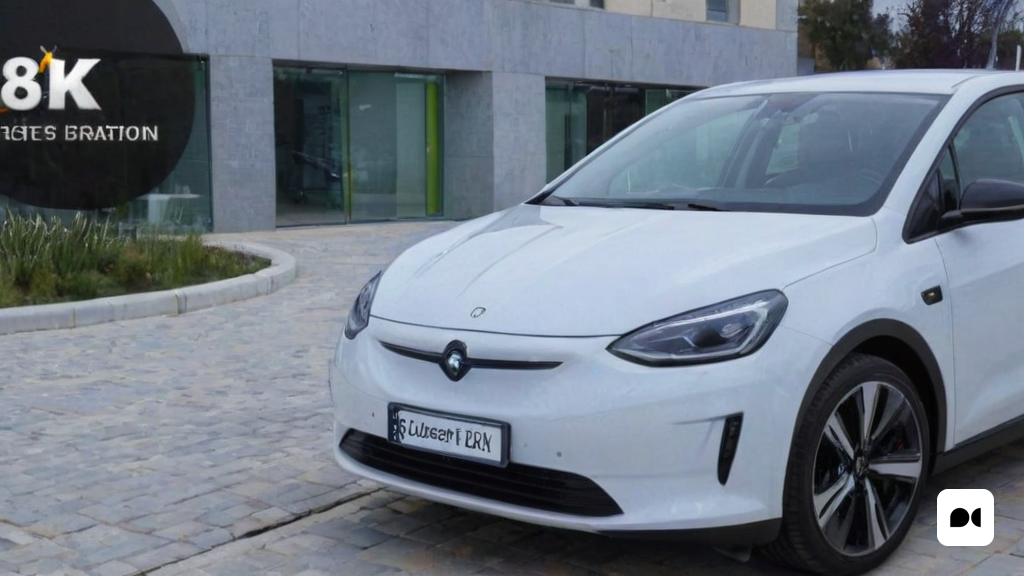An analysis by Transport & Environment reveals the limited supply of affordable electric models in the European market
The prestigious European environmental organization Transport & Environment (T&E) has released a study that shows one of the reasons why, in its opinion, car manufacturers fail to offer the economical electric models that they promise time and time again. The reason is none other than the preference they have given to large, high-end electric cars, which bring them a greater profit margin and are distributed in the market in much more quantity than small or, if you prefer, compact cars.
The report specifically indicates that only 17% of electric vehicles sold in Europe belong to the B segment (no more than 4.25 meters in length), smaller and cheaper, compared to 37% of those with a combustion engine. On the other hand, the availability of large and luxury electric models exceeds that of smaller vehicles by a ratio of 3 to 2.
Manufacturers prioritize SUVs and luxury models
T&E does not hesitate to claim that car brands are “slowing down” the adoption of affordable electric cars by prioritizing sales of large, expensive models. According to their research, between 2018 and 2023 only 40 fully electric models have been marketed in the compact segments (A and B), while 66 correspond to higher categories (segments D and E).
Anna Krajinska, vehicle emissions manager at the entity, believes that “manufacturers’ disproportionate focus on large SUVs and premium models means we have too few mass-market cars and too high prices.”
Europe, far from China in price and variety of electric vehicles
In Europe, 28% of electric sales correspond to segment D, in which new combustion cars only weigh 13%, according to 2023 sales data from the consulting firm Dataforce. Another important data provider in the sector, Jato, establishes that the average price of a 100% electric car in the Old Continent has increased by 39% (+18,000 euros) since 2015 while in China it has fallen by 53%.
Of the sub-€25,000 models that manufacturers have planned to launch, only 42,000 vehicles are likely to reach the European market this year, Transport & Environment continues, this time based on production data from GlobalData. However, he concludes, the lack of economic models has not prevented the electric market share in the EU from growing 2.5 percentage points, up to 14.6%, in 2023. In Spain, that percentage closed last year at 5.56%.
The key role of fleets
T&E maintains that the European electric market could be 22% if the corporate vehicle segment, which represents the majority of new car sales, led electrification. Currently, with a share of 14%, the business sector is behind the private market, which is around 15%.
For this analysis, the environmental lobby is based on a scenario in which the corporate fleet market leads electrification, selling at least 50% more electric vehicles than the private channel. This objective, he specifies, has already been achieved in nine countries: Austria, Belgium, Czech Republic, Hungary, Greece, Luxembourg, Poland, Slovakia and Slovenia.
Taxation, a determining factor
Taxation also plays an important role in encouraging the adoption of electric cars. In Germany, according to T&E, car manufacturers have opposed the reform of company car taxes that proposed increasing the tax burden on gasoline and diesel cars.
The study advocates establishing binding electrification targets for corporate fleets as an ideal instrument to accelerate decarbonization in Europe. Transport & Environment specifically asks the EU to set a goal for fleets to be 100% electric by 2030 at the latest. In this regard, the European Commission has opened a public consultation on the greening of company vehicles.
Anna Krajinska: “Corporate cars are the perfect candidate for accelerated electrification”
Anna Krajinska summarizes the state of play this way: “Corporate cars are the perfect candidate for accelerated electrification. They are heavily subsidized through tax cuts and companies have the financial capacity to invest in electric models. That is why the EU must present a law that covers a large part of the company vehicle market, regulating leasing giants and companies with large fleets of vehicles.”

